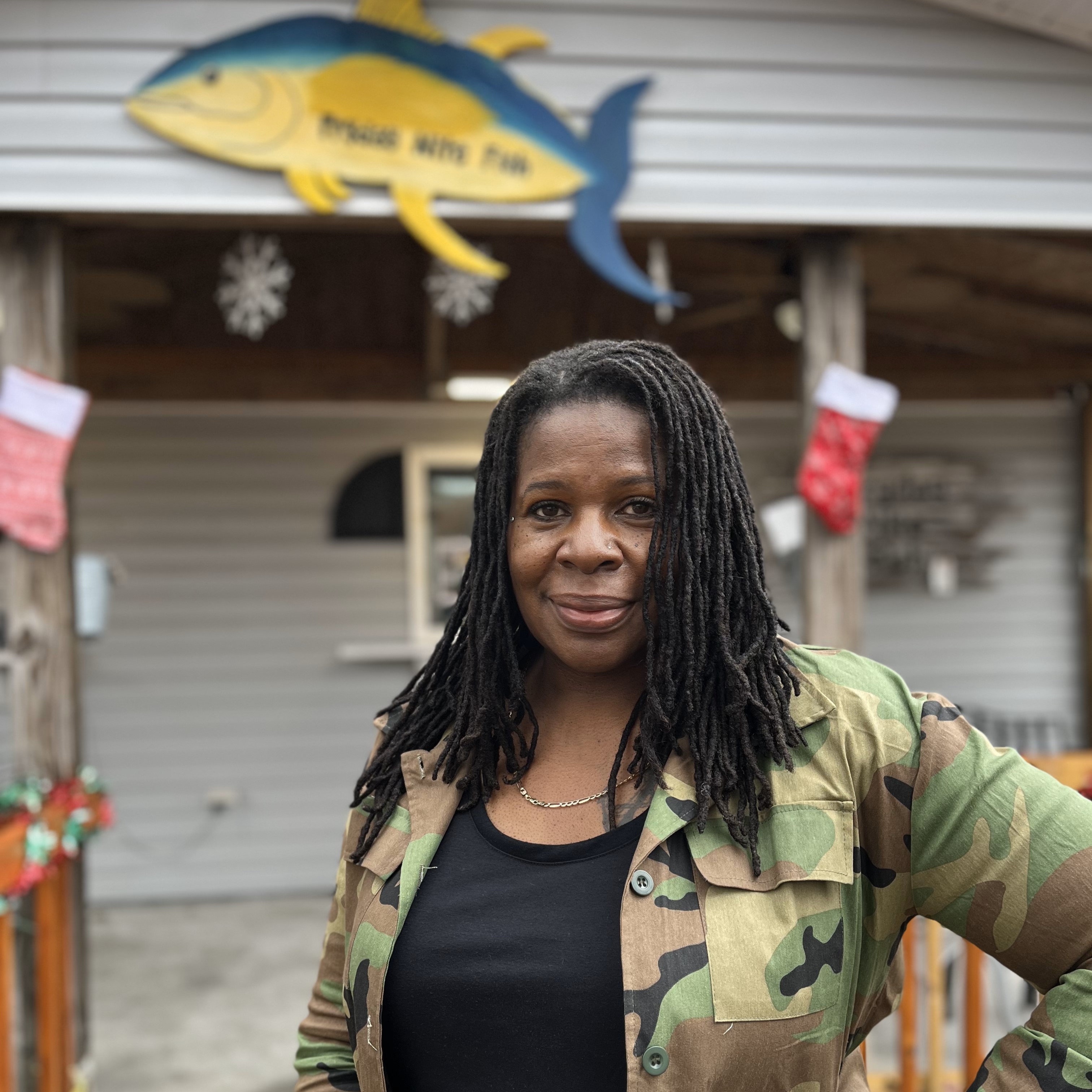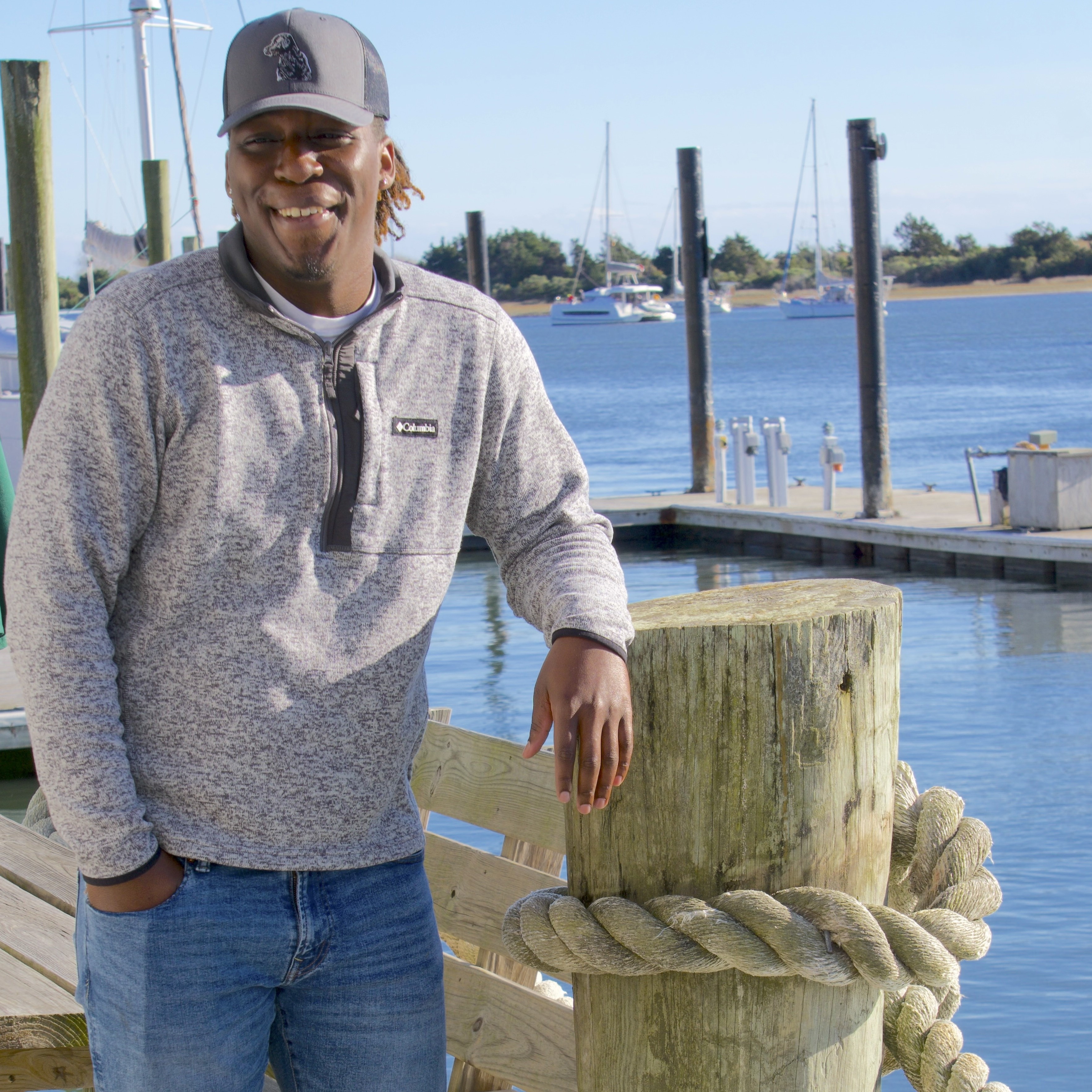Chef Ricky Moore Talks Carolina Cooking

By Danielle Costantini
NC Sea Grant Coastwatch Currents
Moore’s menu includes sheepshead, spot and even star butterfish.
“When I opened up Saltbox, I wasn’t trying to be trendy,” says chef Ricky Moore of Durham.
His small walk-up counter, Saltbox Seafood Joint, quickly became recognized as one of the top places to get fresh seafood in the Triangle. Now with a second location with inside seating, Moore has gained local and national acclaim for his use of North Carolina seafood and traditional recipes — but with modern twists.
Raised in New Bern, Moore thrives on local flavors that he now brings to his customers. “I grew up eating seafood,” says Moore. “I felt like if I was going to do a seafood concept, and in the context that I wanted to do it, I didn’t want it to be in a fine-dining setting.”
Served on trays and in paper baskets, his food is reminiscent of a fish-fry or road-side stand — and that’s how he wants it.
“It’s an everyday thing for these fishermen to get fish and provide this food,” he says. “I want to make it an everyday occasion to eat their food.”
Saltbox highlights the bounty of the North Carolina coast, cuisine that customers traditionally have found difficult to enjoy inland.
“Seeing that we have all of this coastline and all of these wonderful natural resources, why are they not showcased on menus?” Moore says, adding that he draws inspiration from his time in France, where world-known recipes like bouillabaisse rely on locally caught seafood.
He spotlights North Carolina’s catch, even when the species are not as well known as some frequently appearing on menus. “Flounder, shrimp and oyster,” he says of common public perceptions and options. “Done. That is seafood.”
But by including other N.C. species — like triggerfish, mullet, or sheepshead — on his menu, Moore is changing the narrative around local seafood. His efforts include persuading some customers to try an unfamiliar species, especially when it has an unflattering name or image.
“I want to diminish the terminology and reputation of ‘trash fish,’” Moore says. “Just because it isn’t mainstream doesn’t make it lesser.”
To him, “native fish” is the more appropriate term. His plan eased customers into expanding their palettes.
“I understood and knew that it was going to take time to inspire and influence people to try some different things,” Moore says.“I have a standard menu, but also a try-me kind of dish, which is literally, ‘Try this fish!’”
Barry Nash, North Carolina Sea Grant’s seafood specialist, appreciates Moore’s effort to educate and encourage consumers.
“By making his customers aware of the variety of seafood, he is helping them respond to fluctuations in availability of favorite species, sometimes due to weather or other changes,” Nash says. “As they enjoy the ‘catch of the day’ they help to maintain the economic opportunities for North Carolina’s fishing communities.”
Over time, Moore has noticed that people are opting for those previously unfamiliar offerings. He credits that change to the level of trust he and his customers share. His small, personable locations allow more interaction with consumers, including opportunities to answer their questions about unfamiliar species and seasonality.
In response, IndyWeek readers named Moore “Best Chef in the Triangle” in June. That’s overall, not only for seafood.
Moore is eager to share some of his personal favorites.
“I grew up eating bonefish, like croaker, spot and star butterfish,” he says, adding that one of his beloved preparations is “fried hard.” This eastern-North Carolina cooking style includes a whole or butterflied fish, seasoned in cornmeal batter and fried in a cast iron skillet, bones and all.
“When you fry it so crispy,” he says, “it almost becomes like bacon.”
Article continues here





